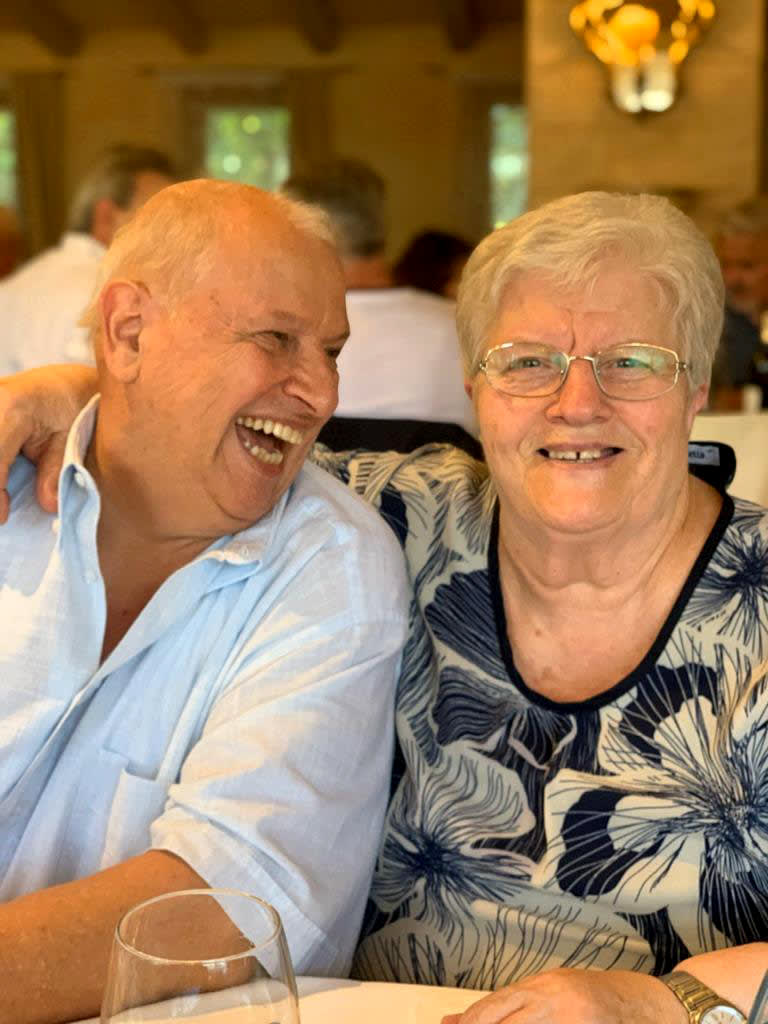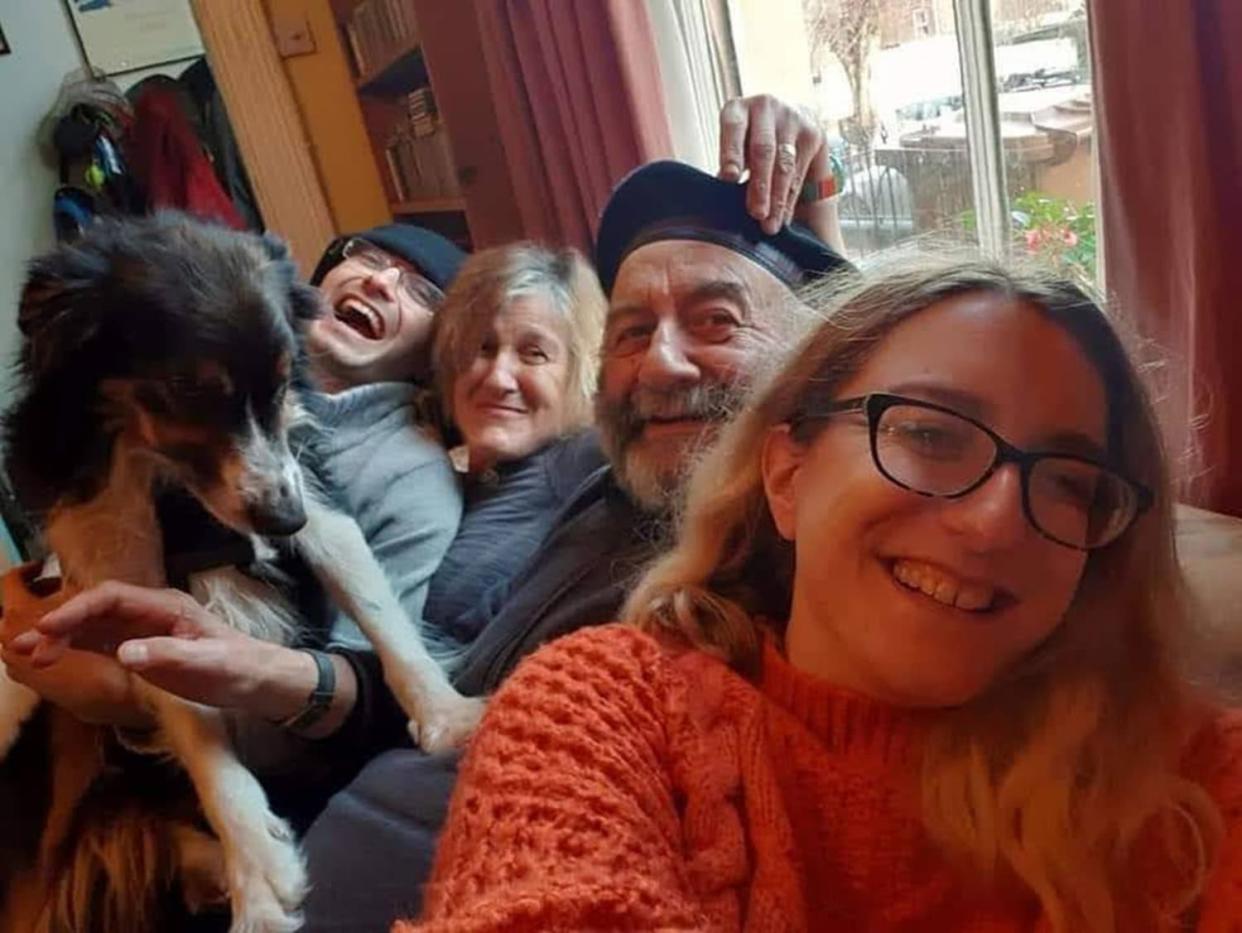'Arguably complicit': In hard-hit European countries, families of Covid victims demand answers
In just four days in March, Diego Federici lost both of his parents. Now he wants to know why.
The pair had been admitted to hospitals in Bergamo province, in northern Italy, after Federici found his mother passed out on the floor of their home, struggling to breathe, and his father disoriented.
The couple tested positive for Covid-19, as did Federici and his brother. Their parents were in their early 70s and had been in relatively good health.
"My mother was in bad condition, but my father had only a little fever," Federici said. "He could breathe." His father, in fact, walked around the hospital — even on the morning of his death.
Federici and his family had had no idea that his parents were infected. He is one of many relatives of coronavirus victims in some of Europe's hardest-hit countries who are demanding investigations into their countries' handling of the virus.
"I want to understand why they didn't close Bergamo earlier," Federici said over the phone from his home in Martinengo. "I want to find justice and understand: Why? Why?"
At the time Federici's parents died, Italy's health care system was being pushed to the breaking point. Hospitals in Bergamo were running out of beds and equipment, as well as health care workers as they, too, caught the virus.

Federici submitted an account of his parents' experience to Bergamo's prosecutor in June through the coronavirus advocacy group Noi Denunceremo, or We Will Denounce, one of 150 such complaints. The group submitted 150 more statements to the prosecutor this month.
Noi Denunceremo is pressing the prosecutor to investigate whether officials were criminally negligent in their handling of pandemic preparations and lockdowns.
"If we understand what happened, the regional government may reform so that in the next worst-case scenario the health system won't collapse," said Robert Lingard, a spokesman for Noi Denunceremo. Lingard's grandfather died after having been infected with Covid-19.
"The good that can come out of this is the reform of the regional health system," he said.
The desire to learn from mistakes made in the spring is echoed by coronavirus survivors and their relatives in the U.K. and Spain — the two other European countries with the highest numbers of deaths.
Jo Goodman's father, Stuart Goodman, died of Covid-19 on April 2. Before the pandemic, he was diagnosed with non-Hodgkin's lymphoma. He had largely been staying indoors, except for one hospital appointment in March, when news started to emerge that the coronavirus was spreading in the U.K.

Nine days after he died, Stuart Goodman received a letter from England's National Health Service. It said he should be isolating himself from others during the pandemic.
Jo Goodman formed the group Covid-19 Bereaved Families for Justice U.K. It is pushing for an urgent independent inquiry into what went wrong and why the U.K.'s death toll is the highest in Europe, as well as for bereavement support for families who have lost loved ones.
"We want to make sure that everything is out in the open and that learning happens," said Goodman, 32. She is angry that no virus mitigation efforts — such as masks or social distancing — were in place at the hospital when her father had his appointment.
In a letter to the group, Prime Minister Boris Johnson said there would be an independent inquiry "at the appropriate time," without saying when that would be.
Goodman and fellow members of the group say that's not good enough. They are calling for the inquiry to take place immediately so the U.K. can learn from any mistakes made during the virus's first wave in the spring.
Download the NBC News app for breaking news and politics
Officials are struggling to respond to a second wave of the illness. After a largely quiet summer, the number of Covid-19 infections across Europe is rising rapidly, with tens of thousands of cases reported every day in the U.K., France, Italy and Spain.
The number of deaths is rising, too, and governments have imposed new restrictions on businesses and socializing, with some politicians and scientists talking about imposing new lockdowns. But the largely united front that marked the response in the spring has largely fragmented, and there is now greater opposition to new measures from business owners and workers.
Adam Wagner, a human rights lawyer in the U.K., said families of coronavirus victims in European states are entitled to request an investigation.
"Where the state is arguably complicit, then there must be a public investigation to ensure that the same mistakes aren't repeated, if there were mistakes made," he said. "There are a number of ways that states can comply with that legal duty.
"When 96 people died in a football disaster, we had 30 years of inquiries," he added, referring to a 1989 soccer game in Hillsborough, in northern England, where overcrowding led to fans' being crushed to death.
In Spain, relatives of coronavirus victims are working with personal injury lawyers to gather more information about the treatment their family members received in nursing homes. More than 35,000 people have died in Spain from Covid-19.
Early on in the epidemic, the humanitarian organization Doctors Without Borders said it alerted national authorities in Spain several times to the "alarming living conditions" of residents in nursing homes and long-term care homes.
"What we want to try to achieve is to bring changes to a system that has failed," said Ana Romero, a lawyer in Málaga, Spain, who is investigating cases on behalf of families who lost relatives.
Romero, who is on the board of the Pan European Organization of Personal Injury Lawyers, is also working with colleagues across the continent to force greater pandemic readiness at the European level.
In Italy, the organizers of Noi Denunceremo emphasized that, at the moment, they don't want to point fingers. They have spent months gathering the complaints that were submitted this month.
"We want to tell our stories, and we are asking for the prosecutor to shine a light on this," said Stefano Fusco, one of the group's founders, who lost his grandfather to Covid-19 in March.
